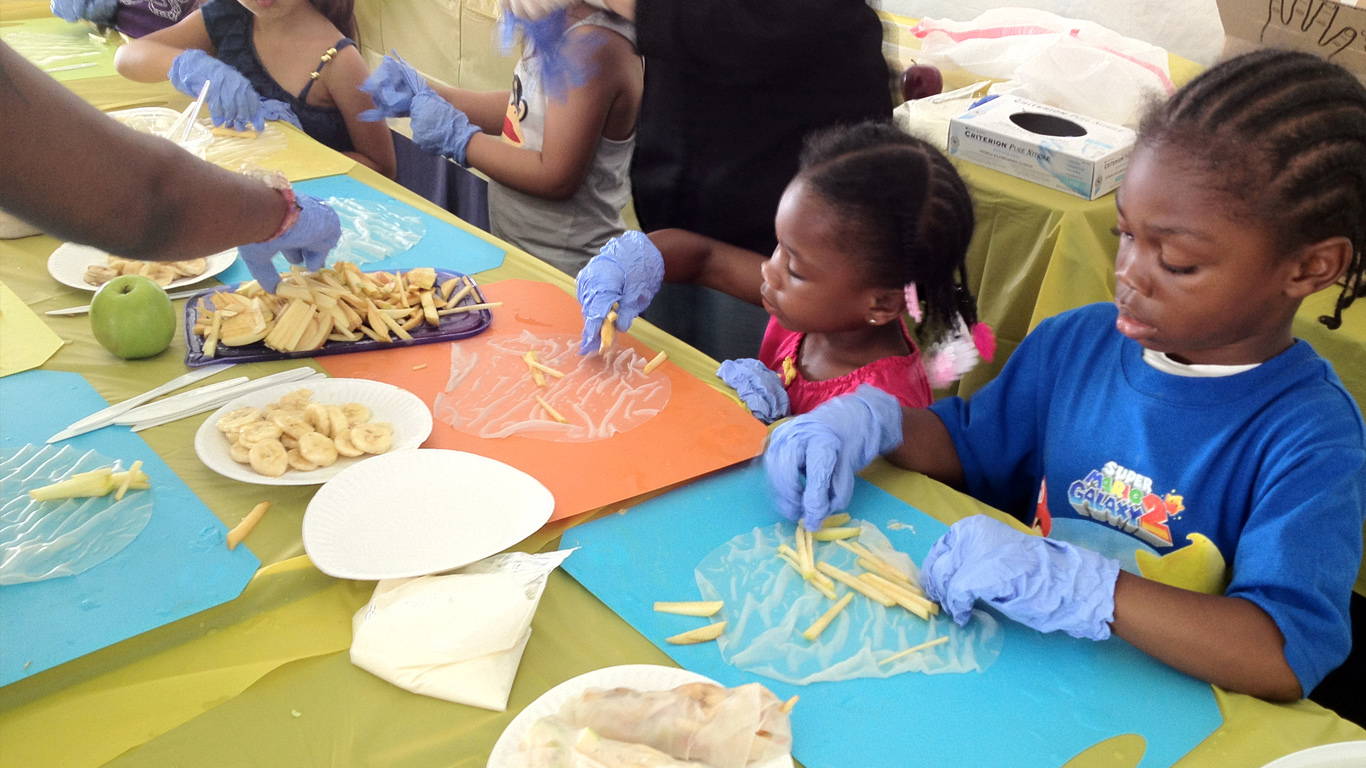12.15.2021
By uscbknpt
Making Lasting Lifestyle Changes with USC Fit Families

The Division’s pro bono preventive wellness program for low-income residents faces uncertainty as funding dries up.
BY STEPHANIE CORRAL
November 29, 2021
THE FIRST TIME SERGIO JUAREZ ATTEMPTED THE 10-MINUTE WALK from his home to the USC campus, the 64-year-old had to call his wife Sara to pick him up.
“I felt dizzy,” Juarez says. “I thought, ‘I’ll never try this again.’”
Juarez knew that his sedentary lifestyle and unhealthy eating habits were largely to blame for his pre-diabetes. Still, he struggled to turn things around.
“I was on the decline,” Juarez says. “I would fail, and my health wouldn’t improve. I started feeling depressed.”
So, when Juarez’s son suggested he attend the free weekly classes offered by USC Fit Families at its Health Sciences Campus, he decided it was worth a shot.
Launched in 2005 through USC’s Division of Biokinesiology and Physical Therapy, Fit Families provides pro bono preventive and wellness physical therapy services to underserved families that are at high risk for health conditions linked to a sedentary lifestyle.
The program’s team of physical therapists, nutrition educators and doctor of physical therapy (DPT) students work together to create weekly content that teaches participants how to make lasting lifestyle changes.
SEEING FIRSTHAND THE POSITIVE CHANGES
Juarez was impressed by the program’s approach to health and wellness: each one-hour class includes an educational component followed by live fitness instruction.
Learning how to read food labels has been the most valuable lesson so far, Juarez says.
“I used to think one bag of potato chips was for one person,” Juarez says, with a laugh.
Juarez’s story resonates with Fit Families Program Director Mariella Crespo DPT ’15, who was raised in a single-parent home where there was little time for exercise, and dinners were often fast food.
“I wish I would have been introduced to programs like Fit Families growing up because it would have taught me early on how to make better choices for my health,” says Crespo, who is an adjunct instructor of clinical physical therapy at USC.
Crespo feels that she is giving back to her community by helping others who share a similar story to hers make long-term and behavioral changes.
“The most inspiring thing about being part of USC Fit Families is seeing first-hand the changes that participants are actively making to adapt a healthier lifestyle,” Crespo says.
Since discovering Fit Families two years ago, Juarez has learned to be mindful of his calorie intake while still enjoying some of his favorite foods — like fried tacos — in moderation. As a result, his blood sugar is lower than ever before, which has improved his vision.
He now exercises whenever he can, even while watching television.
“I used to just sit there and watch football,” Juarez says. “Now when the game starts, I start doing the exercises I have learned.”
Juarez has gained six pounds of muscle and goes on nearly two-hour walks three times a week.
“The classes are magnificent,” Juarez says. “It completely changed my life.”
Juarez often invites friends and family members to attend classes. In addition to his wife, five members of his family have participated.
“My brothers have started calling me ‘el healthy man,’” Juarez says.
IN TIMES OF ADVERSITY, OPPORTUNITY ARISES
Ava Cicio, DPT ’23, a Fit Families student coordinator, considers Sergio to be the cornerstone of the Fit Families community.
“During the presentations, we can always count on him to be engaged, active, and part of the discussion each week,” Cicio says.
As a DPT student, the program has taught Cicio about teamwork, planning and preventive healthcare.
“I love to see the passion that our student volunteers bring to the presentations and how much our participants benefit from their creations each week,” Cicio explains.
But when the pandemic started, the program had to find new ways to engage with participants and keep them active.
“With lots of work, dedication and creativity from all members, we came up with an online structure that would still capture the topics covered in our in-person format,” Crespo says. “I think in times of adversity, opportunities arise.”
Classes are held and recorded via Zoom, which are then posted to the program’s Facebook page so that students and participants can easily refer to past sessions.
The switch to a virtual format has allowed the program to expand its reach outside Los Angeles, with participants often Zooming in from Mexico and El Salvador.
“I think the pandemic has forced us to become really creative and adaptable in how we provide our service to the community,” Cicio says.
As an example of this creativity, in a recent class, participants were led through a boxing session with the use of canned goods and a chair.

FUNDING UNCERTAINTY
But while recent events have spurred creativity within the program, they have also led to more unforeseen challenges.
Fit Families recently lost funding, leaving the program’s future uncertain. In addition to continued support from the USC Division of Biokinesiology and Physical Therapy, the program will now rely on charitable contributions from new sources to maintain its programming.
“Losing funding means that this community will no longer have access to our services and could negatively affect the overall health and wellness of this community,” Crespo says.
Among the program’s needs are online marketing, advertising, supplies, graphic design services, and community outreach efforts.
Still, Crespo remains hopeful about the program’s future.
“Just like our community and our participants, USC Fit Families is resilient,” Crespo says. “We will be seeking potential donors and other sources of funding because we know that this program is beneficial to our community and to USC DPT students.”
If you would like to help support USC Fit Families, please visit our Ignite Page and select the USC Physical Therapy Fit Families fund button.

